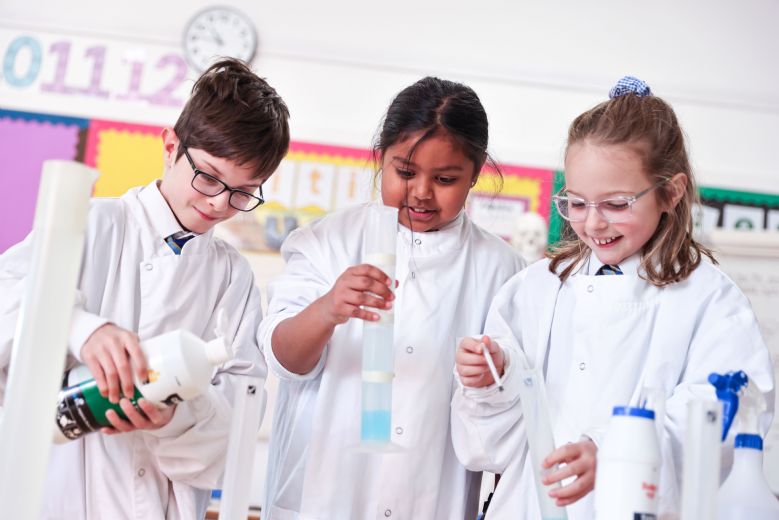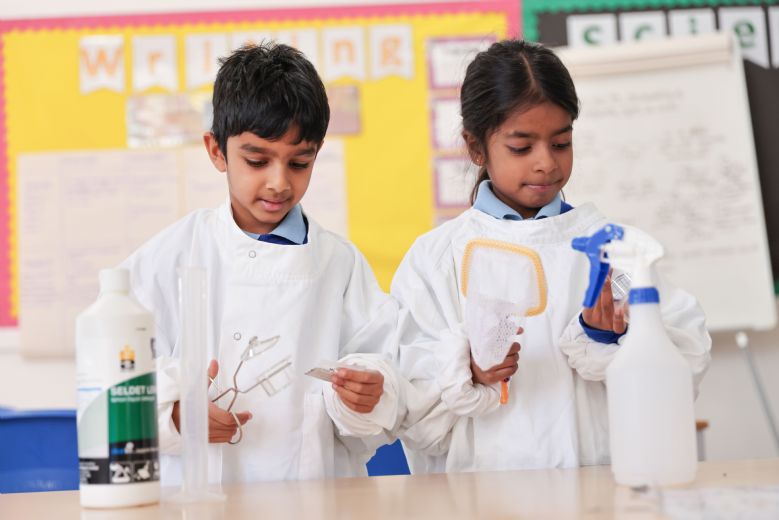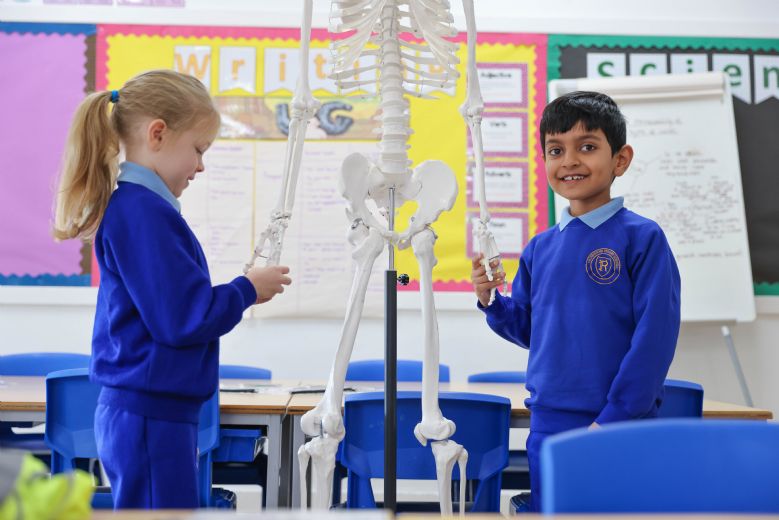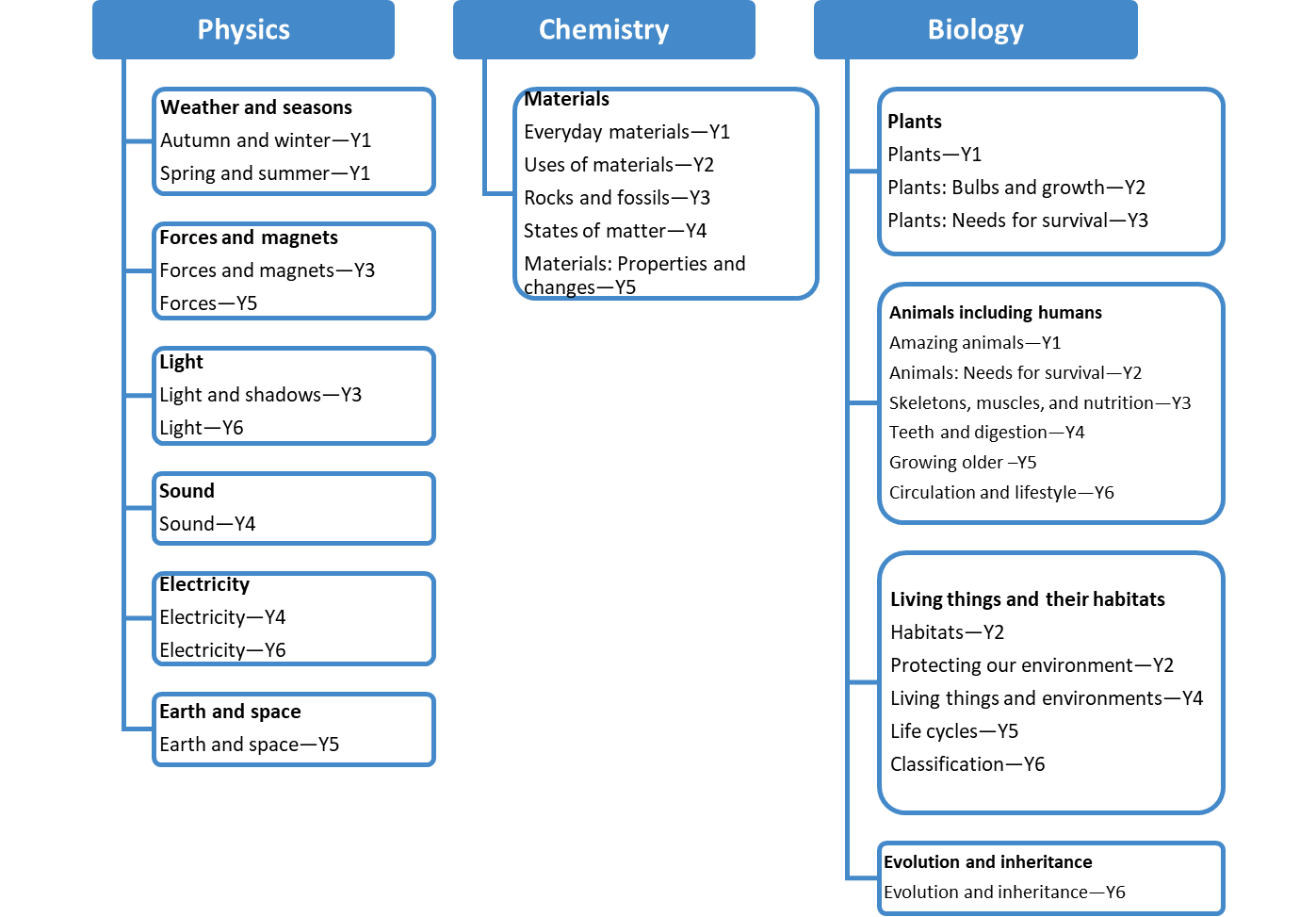Science



Vision
For all our pupils to leave primary school with a deep understanding of both its substantive knowledge and disciplinary knowledge, equipping them with the knowledge and skills required to understand the uses, limitations, and implications of science.
Curriculum Design: How our curriculum is constructed and why?
Here at Roxbourne, children’s science education begins in EYFS through their integrated pedagogy. We provide daily rich and varied opportunities for children to explore the natural world, which build their understanding of important processes and changes. Children learn about the seasons and changing states of matter through carefully planned Outdoor Continuous Provision. This learning is foundational to the subsequent formalised learning in KS1 science.
In KS1 and KS2, our science curriculum teaches pupils a broad and strong knowledge of key scientific concepts alongside disciplinary content (‘how we know this’). By learning substantive (concepts, models, laws, and theories) and disciplinary knowledge (scientific practices) together, pupils develop an understanding of the foundations of scientific knowledge and are able to articulate how this knowledge was gained and may be applied in a range of contexts. This enables pupils to begin to make connections between different aspects of their knowledge, securing a deeper level of understanding and providing a springboard to science learning at secondary level and beyond.
Substantive scientific knowledge is generally divided into three subject strands—Biology, Physics, and Chemistry. However, this distinction is not used in the National Curriculum until Key Stage 3. Therefore, individual topic names (as stated in the National Curriculum) are used in the progression map below.

Curriculum Delivery: What our curriculum looks and feels like in action?
Science is taught twice weekly in KS1 and KS2. We explicitly teach pupils the ‘facts’ of science and make this tangible through frequent experiments that each provides an opportunity to put the scientific method into practice. Through learning about the scientific method, we develop pupils’ understanding of the nature, processes, and methods of science. We expose pupils to different types of scientific enquiry, challenging them to answer increasingly complex scientific questions. Through this focus on scientific enquiry, pupils will begin to appreciate how scientific knowledge is established and, for example, that ‘facts’ are open to revision in the light of new evidence. Science is brought to life further through case studies, highlighting influential scientists’ work and by taking learning outdoors. Our pupils also benefit from carefully chosen enrichment experiences throughout the academic year with clear links to their unit of study.
Alongside our adopted curriculum, our teachers plan drop-down days whichare meticulously designed to offer pupils enriching experiences, spanning from charitable fund-raising initiatives to fostering an understanding of the significance of children's mental well-being. Each drop-down day serves a distinct purpose and leaves a meaningful impression on both the children and individuals in our local community who rely on various charities for support in their daily lives. These occasions include Science Week and Outdoor Learning Day. We engage with our wider community by making use of STEM society ambassadors to inspire pupils to consider a job in science, technology, engineering and maths.
Impact: How do we know our pupils are learning, understanding and remembering our intended curriculum?
At the beginning of each lesson, pupils retrieve their knowledge of scientific ‘facts’ by completing a low-stakes quiz. This is used by teachers to formatively assess pupils’ understanding of taught material and address misconceptions. Pupils also complete a series of short questions at the end of each lesson to assess what learning has ‘stuck’ in their minds. Throughout lessons, teachers will use targeted questioning to check and deepen pupils’ understanding; providing support and challenge as required. Pupils’ self-assessment, alongside teachers’ over the shoulder marking, ensures that pupils develop a clear understanding of scientific concepts. Moreover, they are supported to explain their understanding throughout each lesson using relevant scientific vocabulary.
Enrichment in Science
We understand the importance of applying scientific knowledge through enrichment trips and experiencing scientific learning within the locality. Therefore, we adapt our curriculum to embed places of significance within the locality of Harrow. This includes:
- Outdoor Learning Day
- Ruislip Woods minibeast hunt
- Library Rocks Exhibition.
We also believe that there are some significant places of interest linked to science that are non-negotiables within our enrichment curriculum. These include:
- London Zoo
- Science Museum
- London Sea Life
Furthermore, as part of the Young People's Book Prize 2023 Judging Panel, we are working with The Royal Society to judge new science children’s books.
You can find more about our enrichment programme here.